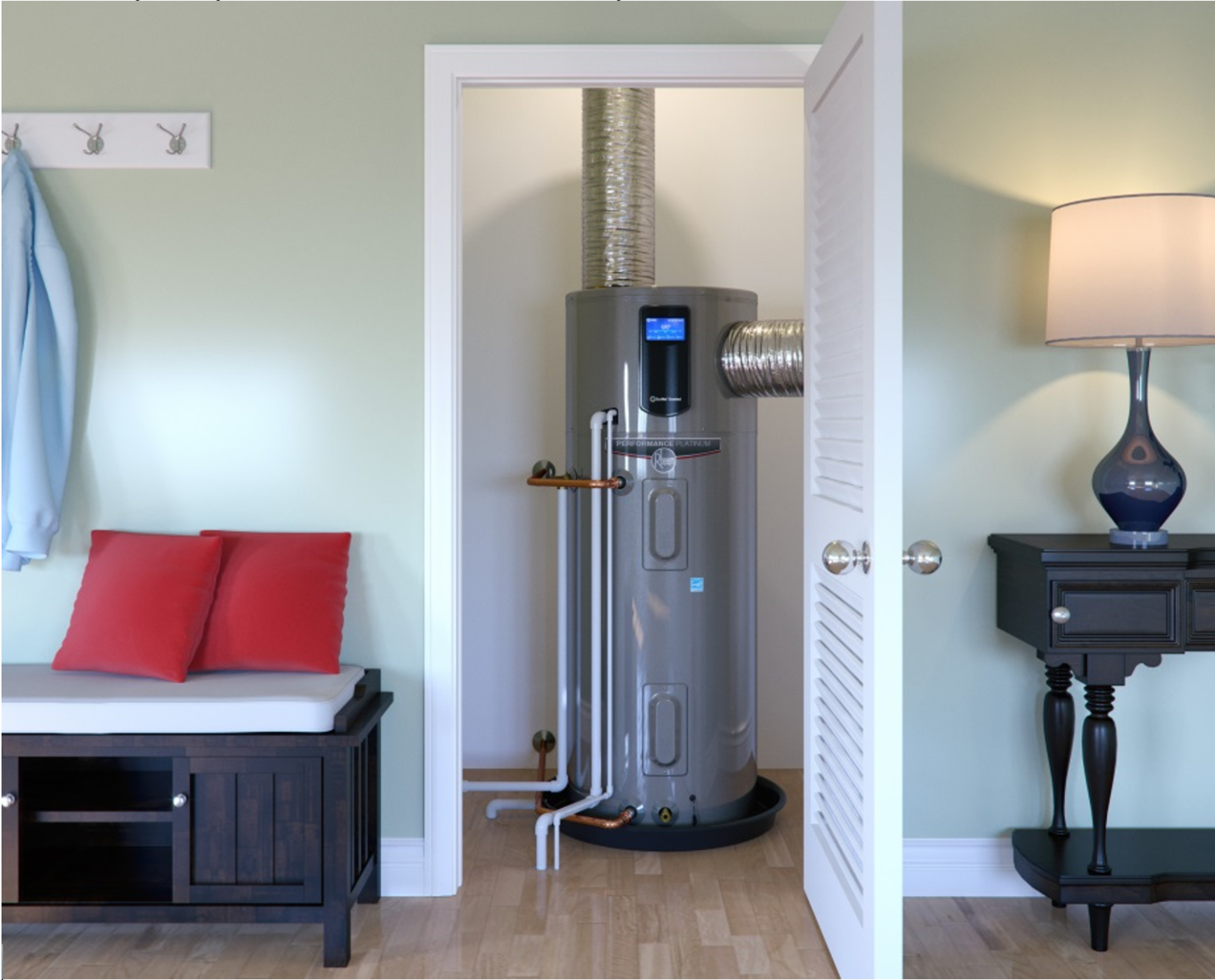
- High Country Conservation
- March 6, 2024
- Ask Eartha
Dear Eartha, what’s the most eco-friendly water heating option for my home?
What’s the next big thing in home heating? Electricity! That’s right – “electrification,” the act of swapping natural gas-fired appliances for those that run on renewable electricity, is a powerful way we can all fight climate change from the cozy comfort of our warm homes – and showers.
But if your boiler or furnace isn’t due to be replaced soon, it might not make sense to rush out and get a cold climate heat pump. That doesn’t mean you don’t have any opportunities to go electric. Another major user of natural gas in our homes is the water heater. What electric alternatives are there for water heating? Let’s dive in!
Why Electric Water Heating
On average, water heating accounts for about 18% of our energy bills. That means water heating presents a great opportunity for saving energy – and money. Water heaters typically last 8-12 years, so if yours is getting up there in years, it’s a good idea to come up with a game plan for replacing it.
Why consider an electric water heater? Residents with standalone natural gas water heaters could increase efficiency by about a third by switching to an electric unit. Plus, electricity in Summit County is already 40% renewable, which makes converting from a gas to electric water heater a long-term environmental win, too.
What about the dollars and cents? The cost to operate an electric heat pump water heater is going to be the same or less than a standalone gas water heater, due to the significant improvement in efficiency but higher cost of electricity compared to natural gas – for now. Traditional electric water heaters may cost more to operate but less to install. Offsetting with solar makes any electric option cheaper.
Options to Consider
A great way to find out what type of water heater you currently have and get personalized recommendations for upgrades is to sign up for a home energy assessment through the High Country Conservation Center. Their local rebate program even offers generous incentives for certain types of electric water heaters. But how do you know what type to get? Here’s a quick run down of different water heaters along with their pros and cons.
Traditional electric water heaters have a heating element inside the tank that heats the water directly. If your water heater is already electric, this is most likely what you have. Because these heaters rely on electric resistance, the maximum heating efficiency is 100% – but no more.
Another alternative is a tankless or on-demand water heater. On-demand water heaters instantaneously heat water and therefore have the benefit of never running out. These systems save energy by eliminating the need to maintain a tank of hot water all the time and only use energy when you turn on the tap. The downside is that they draw a lot of electricity to produce the amount of heat needed, which may require an expensive electrical service upgrade.
A technological step above? Enter the heat pump water heater. Leveraging principles of refrigeration, heat pump water heaters extract energy from the air and use it to heat the water. Because the electricity is used to transfer heat from one place to another, heat pumps can achieve much higher efficiencies and significantly reduce energy consumption. Heat pump water heaters typically contain a backup heating element, too. Location is an important consideration, as they need to pull the heat from somewhere. A warm mechanical room is ideal.
Integrating a solar thermal water heating system is a great way to maximize renewables. As advertised, solar water heaters capture energy from the sun to heat your home’s water. A solar thermal system almost always includes a backup electric heater to ensure a continuous supply of hot water even on cloudy days. It’s common to think about solar panels for generating electricity, but transferring heat directly from the sun’s radiation to your water is actually a much more efficient process!
The journey toward electrifying your home is an important step towards a carbon free future, but it’s not always straightforward. As we navigate the waters of clean and efficient energy choices, may we all make informed decisions that not only benefit our homes but also contribute to the larger goal of mitigating climate change.
Ask Eartha Steward is written by the staff at the High Country Conservation Center, a nonprofit dedicated to waste reduction and resource conservation. Submit questions to Eartha at info@highcountryconservation.org
